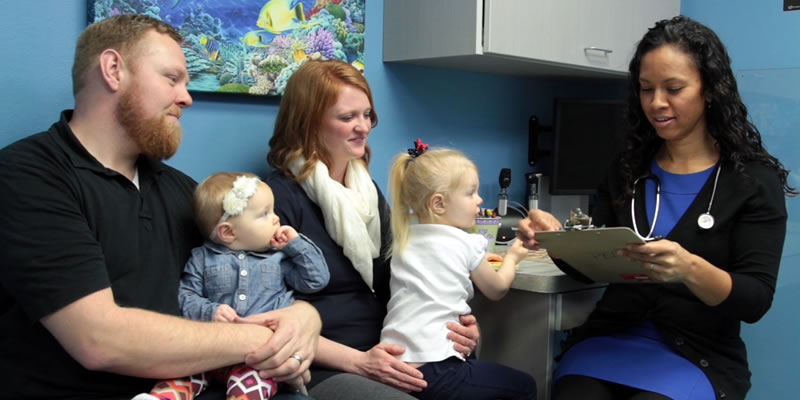Most US kids not getting developmental screening

NEW YORK (Reuters ) - Although US pediatricians recommend that all babies and toddlers receive screening for developmental problems, a survey of parents suggests that most kids don’t get evaluated.
Out of an estimated 9 million children nationwide between 9 months and 35 months old, only about 30 percent receive age-appropriate formal screenings for any delays in areas like language and social development, the results suggest.
Just 37 percent of these children had what’s known as developmental surveillance - when doctors or other healthcare providers asked parents if they had any concerns about their child’s learning, development or behavior.
“Early identification and intervention can greatly improve development and educational success for those with delays and disabilities,” said lead study author Ashley Hirai, a researcher at the US Health Resources and Services Administration in Rockville, Maryland.
“Parents should ask their doctor about the formal screenings recommended at 9, 18, and 24 or 30 months,” Hirai said by email. “Because parents know their children the best, they should discuss with their doctor any concerns they may have about a child’s development or in meeting certain language, social, and physical developmental milestones at expected ages - such as babbling or talking, making eye contact, or being able to hold a crayon.”
Approximately 12 percent to 15 percent of US children experience developmental delays or disabilities, Hirai’s team writes in JAMA Pediatrics. These problems can range from isolated delays in hitting certain milestones like babies’ first steps or first words to more serious impairments in hearing, vision, motor skills, learning, emotional or behavioral development.
For formal developmental screenings, parents complete detailed questionnaires about their child’s attainment of milestones based on their current age.
The American Academy of Pediatrics (AAP) recommends developmental screening during routine checkups at 9, 18 and 30 months as well as screening specifically for autism at 18 and 24 months. In addition, AAP also recommends screening and ongoing surveillance whenever parents or clinicians have concerns.
For the current study, researchers examined data from a nationally representative survey of parents and caregivers of 5,668 randomly selected children aged 9 to 35 months. Surveys were done by mail or online between June 2016 and February 2017.
Kids with a regular primary care provider were 34 percent more likely to get screening and 24 percent more likely to get surveillance than children who didn’t have a medical home, the study found.
What part of the country the children lived in also made a big difference.
The proportion of kids receiving screening ranged from a low of about 17 percent in Mississippi to a high of almost 59 percent in Oregon. Surveillance rates also ranged from a low of about 19 percent in Mississippi to a high of 61 percent in Oregon.
Only about 10 percent of the variation between states could be explained by the characteristics of children and families, the study found. This suggests that state policies play an outsize role in determining whether kids get screened, the study authors conclude.
Conflicting recommendations may also contribute to low screening rates, said Norah Johnson, a nurse practitioner and researcher at Marquette University in Milwaukee, Wisconsin, who wasn’t involved the study.
For example, the US Preventive Services Task Force only recommends autism screening when parents voice concern because the Task Force hasn’t found enough evidence to recommend universal screening, Johnson noted.
“I think that ‘unnecessary worry’ is not a good reason to limit universal screening,” Johnson said by email.
“Universal screening opens up conversations between parents and healthcare providers to discuss concerns about child development,” Johnson added. “Parents may not have the knowledge or skill of communicating the delays without being specifically asked.”
Parents can get information about developmental milestones by age from the US Centers for Disease Control and Prevention as well as a free milestone tracker app.







